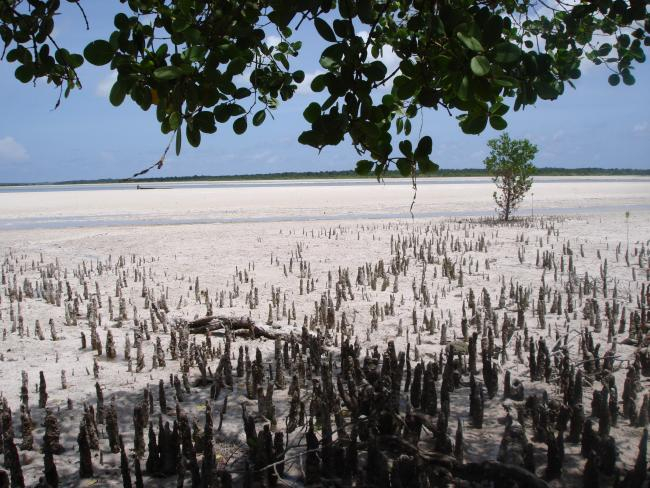Tropical coastal ecosystems are facing a critical situation: rapid environmental change meets fundamental social changes, threatening ecosystem functions and services with local as well as global impacts. This problem requires interdisciplinary research aimed at an understanding of the combined effects of natural and anthropogenic pressures on these systems. For addressing these complex problems, the SUTAS programme focuses on two research fields:
1. Environmental drivers
The ever-intensifying agro- and aquaculture sector, growing human populations and improper sewage treatment, as well as significant industrial runoff alter coastal marine ecosystems, most substantially with respect to a changing nutrient regime. Increased nutrient loads may have different effects on ecosystem function in sea grass beds, coral reefs and overall coastal marine communities, with great implications for coastal villagers.
2. Societal drivers
Human population growth, a largely expanding tourism sector, increased market integration as well as ocean warming, rising sea level and increased acidification are putting enormous pressure on the living resources and the biodiversity of most tropical coastal ecosystems. Here, resource management and governance systems are often not well developed, leading to the rapid degradation of these ecosystems and the loss of their services with effects not only for the local people but also for humanity in general.
Focus area: Zanzibar
The SUTAS research programme aims at conducting multidisciplinary research in focus regions of the ZMT in order to tackle particular social-ecological problems of the respective region. For the first three years of SUTAS, the focus area is the island of Zanzibar off the coast of Tanzania. Its coastline hosts a range of diverse ecosystems, including mangrove forests, sea grass beds and coral reefs. Relatively pristine sites are in close proximity to areas that are heavily impacted by urbanization and changes in land-use patterns. This facilitates intersystem comparisons of the effects of anthropogenic disturbance.
Zanzibar has about 35.000 fishermen and an enormously growing tourism sector with an increasing demand for fresh fish. However, the exploitation status of the marine resources and the general state of the coastal ecosystems are as yet little understood and integrative research approaches are needed to enable ecosystem based management.

 Contacts
Contacts
Prof. Dr. Matthias Wolff
+49 (0)421 23800 - 127This email address is being protected from spambots. You need JavaScript enabled to view it.
Sustainable Use of Tropical Aquatic Systems
Partner country: Zanzibar
Duration: since March 2013
Funding: Leibniz Association
Status: joint project coordinated by the ZMT




